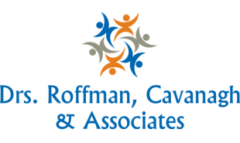Drs. Roffman, Cavanagh & Associates provides comprehensive psychoeducational evaluations, child and adolescent therapy, and college-age and young adult therapy.
 Comprehensive Psychoeducational Evaluations
Comprehensive Psychoeducational Evaluations
Our practice’s comprehensive psychoeducational evaluations are designed to assess for learning disabilities, attention problems, executive function problems, language-based learning issues, giftedness and mood disorders, including anxiety and depression. We also evaluate students who need updated psychoeducational evaluations. An evaluation typically can be broken down into three different parts 1) parent meeting 2) testing sessions 3) Feedback meeting.
Parent Meeting/Intake: The testing process begins with Dr. Roffman or Dr. Cornbrooks meeting with you to discuss your child in greater detail. This provides us with the opportunity to learn more about your child and discuss your concerns at length. Parents are encouraged to bring copies of previous evaluations, standardized test results, grade reports, work samples, or any other information that would be useful in the evaluation process. The intake meeting also gives parents a chance to ask the psychologist any questions about the testing process.
Testing sessions: Most comprehensive evaluations include 2-3 testing sessions, which may vary in length depending on your child’s age. Sometimes a 4th testing session is required, as not all students work at the same pace. We evaluate the following areas: intellectual functioning, academic skills, memory, visual processing, language processing, executive functioning, attention and social and emotional functioning. These areas may be modified depending on the referral question.
Feedback: After Dr. Roffman or Dr. Cornbrooks have a chance to review the findings, consult with schools (with parental permission) and prepare a comprehensive report, the psychologist will meet with parents to review the findings. The objective of this meeting is to provide a general understanding of the testing results and to review recommendations with the family. Depending on the child’s age, Dr. Roffman or Dr. Cornbrooks will also schedule a time to discuss the results with the child.
Dr. Roffman and Dr. Cornbrooks strongly believe that the testing process does not conclude with the feedback. We remain available to answer questions, help with the implementation of recommendations, or even attend an IEP or school meeting to discuss the test results with your child’s school.
 Child and Adolescent Therapy
Child and Adolescent Therapy
Children and adolescents experience difficulties for many reasons. We specialize in working with children and teenagers who are experiencing challenges with:
- ADHD
- Anxiety (i.e. Specific Phobias, Social Anxiety, Generalized Anxiety)
- Anger Management
- Autism Spectrum Disorders
- Behavior Management
- Depression
- Executive Function skills
- Low Self-Esteem
- School refusal
- School-related difficulties
- Social Problem Solving
 College-Age and Young Adults Therapy
College-Age and Young Adults Therapy
We also provide therapy services for college-age students who are experiencing a variety of challenges including:
- Depression
- Anxiety (i.e. Specific Phobias, Social Anxiety, Generalized Anxiety)
- Executive Functioning/Attention
- Anger Management
- Interpersonal stressors
- Issues related to emerging adulthood
With all individuals that we work with, we use a variety of evidence-based methods, including cognitive behavioral therapy, executive functioning training, anxiety reduction strategies, training in anger management and mindfulness techniques. For children and teenagers, we may involve parents in their children’s sessions or meet privately with parents, as needed, to discuss their child’s progress. We strive to create a space that will those that we work with to feel comfortable enough to explore challenges and attain goals.
For children and teenagers, prior to beginning therapy, your child’s therapist will meet typically with the parents or caregivers to gain a better understanding of current concerns. This will help formulate goals to guide therapy. This meeting will also help to determine the frequency of therapy sessions, as needs are different depending on the presenting concerns.
For all services, please contact our office at 410-561-3651 to gather more information and discuss services with our clinicians.
